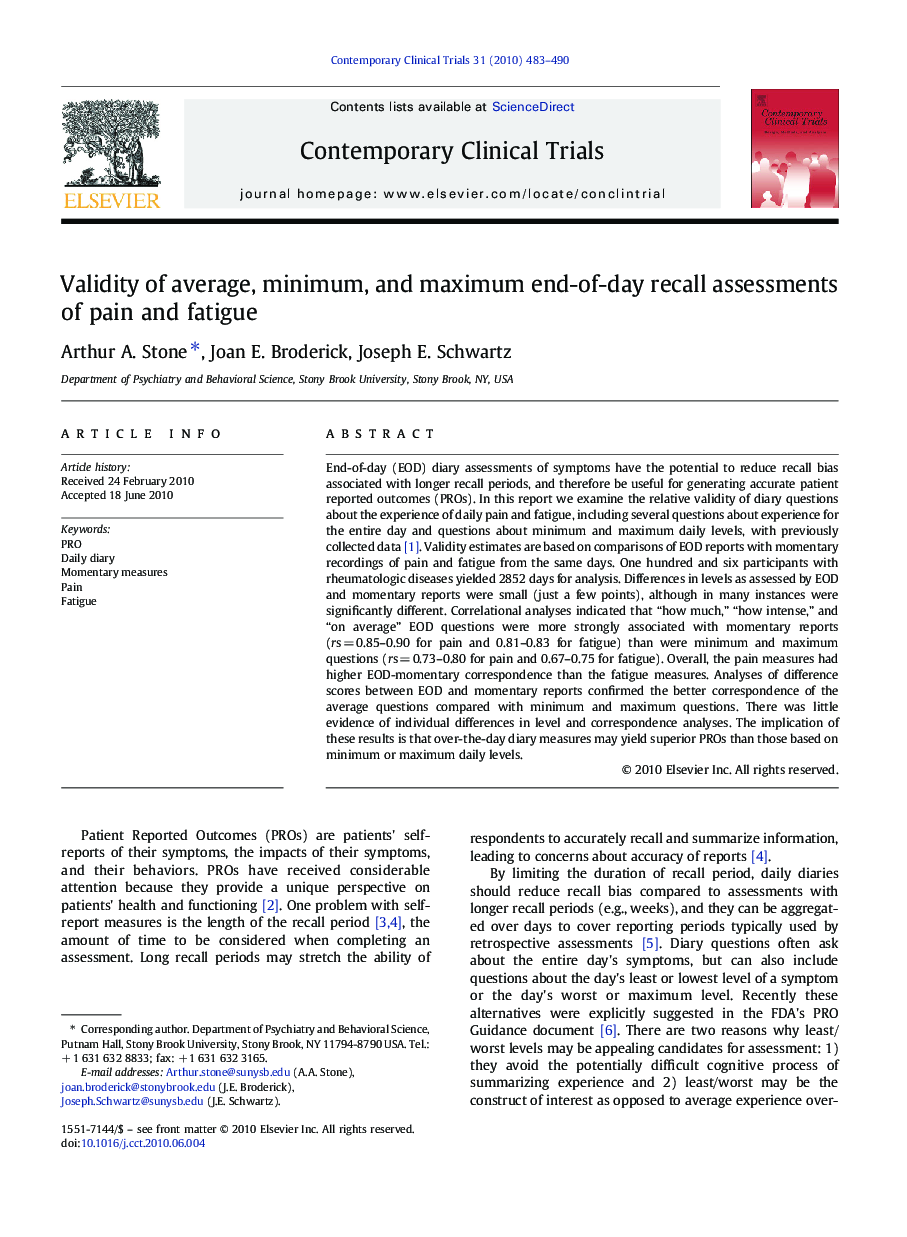| Article ID | Journal | Published Year | Pages | File Type |
|---|---|---|---|---|
| 3463118 | Contemporary Clinical Trials | 2010 | 8 Pages |
End-of-day (EOD) diary assessments of symptoms have the potential to reduce recall bias associated with longer recall periods, and therefore be useful for generating accurate patient reported outcomes (PROs). In this report we examine the relative validity of diary questions about the experience of daily pain and fatigue, including several questions about experience for the entire day and questions about minimum and maximum daily levels, with previously collected data [1]. Validity estimates are based on comparisons of EOD reports with momentary recordings of pain and fatigue from the same days. One hundred and six participants with rheumatologic diseases yielded 2852 days for analysis. Differences in levels as assessed by EOD and momentary reports were small (just a few points), although in many instances were significantly different. Correlational analyses indicated that “how much,” “how intense,” and “on average” EOD questions were more strongly associated with momentary reports (rs = 0.85–0.90 for pain and 0.81–0.83 for fatigue) than were minimum and maximum questions (rs = 0.73–0.80 for pain and 0.67–0.75 for fatigue). Overall, the pain measures had higher EOD-momentary correspondence than the fatigue measures. Analyses of difference scores between EOD and momentary reports confirmed the better correspondence of the average questions compared with minimum and maximum questions. There was little evidence of individual differences in level and correspondence analyses. The implication of these results is that over-the-day diary measures may yield superior PROs than those based on minimum or maximum daily levels.
